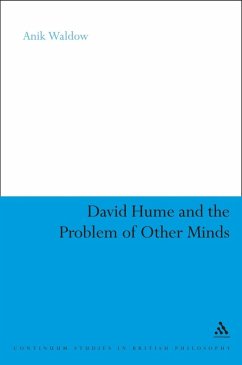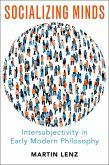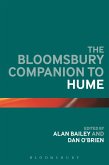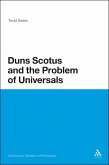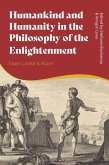The problem of other minds has widely been considered as a special problem within the debate about scepticism. If one cannot be sure that there is a world existing independent ly of one's mind, how can we be sure that there are minds - minds which we cannot even experience the way we experience material objects?
This book shows, through a detailed examination of David Hume's A Treatise of Human Nature, that these concerns are unfounded. By focusing on Hume's discussion of sympathy - the ability to connect with the mental contents of other persons - Anik Waldow demonstrates that belief in other minds can be justified by the same means as belief in material objects.
The book thus not only provides the first large-scale treatment of the function of the belief in other minds within the Treatise, thereby adding a new dimension to Hume's realism, but also serves as an invaluable guide to the complexity of the problem of other minds and its various responses in contemporary debate.
This book shows, through a detailed examination of David Hume's A Treatise of Human Nature, that these concerns are unfounded. By focusing on Hume's discussion of sympathy - the ability to connect with the mental contents of other persons - Anik Waldow demonstrates that belief in other minds can be justified by the same means as belief in material objects.
The book thus not only provides the first large-scale treatment of the function of the belief in other minds within the Treatise, thereby adding a new dimension to Hume's realism, but also serves as an invaluable guide to the complexity of the problem of other minds and its various responses in contemporary debate.

